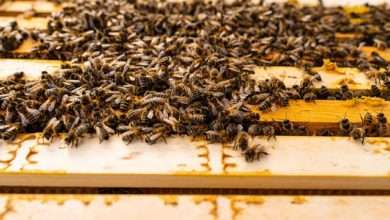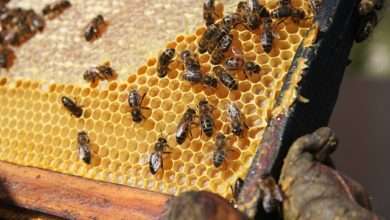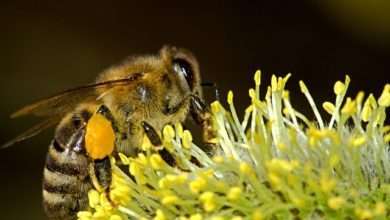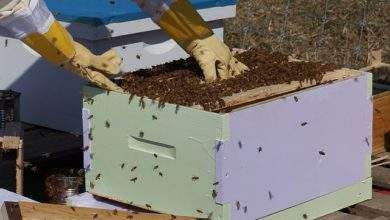How to Start Beekeeping in Pennsylvania
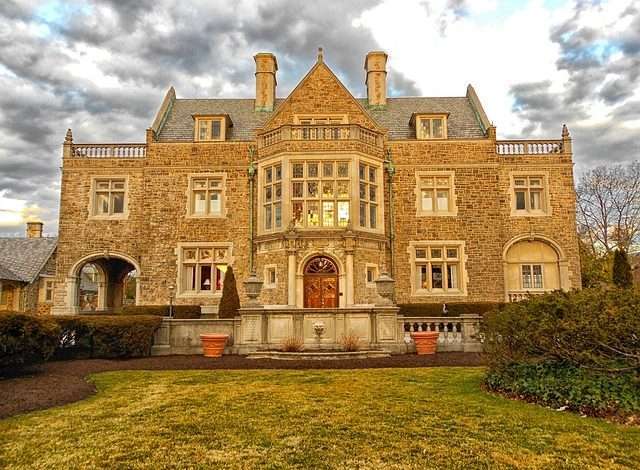
Are you captivated by the fascinating world of beekeeping? Are you considering becoming a beekeeper in Pennsylvania but don’t know where to start? Look no further! In this beginner’s guide, we will provide you with essential tips and tricks to kickstart your beekeeping journey.
Beekeeping is not just a hobby; it’s a rewarding and sustainable practice that promotes biodiversity and helps maintain the delicate balance of our ecosystem. Whether you’re interested in harvesting honey, supporting pollination, or simply nurturing these incredible insects, this guide is for you.
From choosing the right hive and equipment to understanding bee behavior and maintaining a healthy colony, we will cover everything you need to know to get started. You’ll learn how to acquire bees, handle them safely, and protect their health. We’ll also enlighten you on harvesting honey and maintaining your hives throughout the year.
With our comprehensive guide, you’ll gain the confidence and knowledge to embark on your beekeeping adventure. So, put on your beekeeping suit, grab your smoker, and let’s dive into the fascinating world of beekeeping together!
Why Start Beekeeping?
Bees play a vital role in our environment by pollinating plants, which is crucial for food production and maintaining biodiversity. Unfortunately, bee populations worldwide have been declining due to various factors, including habitat loss, pesticide use, and climate change. By becoming a beekeeper, you can contribute to the conservation and well-being of these important pollinators.
Not only does beekeeping benefit the environment, but it also offers numerous personal rewards. Beekeeping allows you to connect with nature, learn about the complex social structure of bees, and enjoy the delicious rewards of honey production. It can also be a great educational experience for children and a source of therapeutic relaxation for adults. So, why not embark on this exciting journey and become a beekeeper?
Pennsylvania’s Unique Climate and Agricultural Landscape
Pennsylvania is a state that offers a unique climate and diverse agricultural landscape, making it an ideal destination for beekeepers. The state’s varied flora, including orchards, wildflowers, and crops, offer abundant food sources for bees throughout the year.
Combined with responsible agricultural practices and protection of natural habitats, beekeepers in Pennsylvania have a favorable environment to enhance honey production, support pollination, and contribute to the overall biodiversity of the state.
Benefits of Beekeeping
Before diving into the practical aspects of beekeeping, let’s explore the many benefits that come with this fascinating hobby.
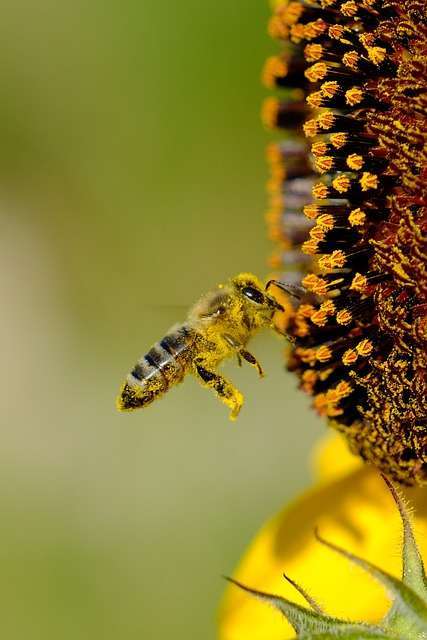
- Pollination: Bees are essential for pollinating plants, including fruits, vegetables, and flowers. By keeping bees, you can enhance the pollination of your garden and improve the yield and quality of your crops.
- Honey production: One of the most sought-after rewards of beekeeping is the production of honey. Harvesting and enjoying your own natural, raw honey is a truly satisfying experience. Plus, you can share it with friends and family or even sell it locally.
- Wax and other bee products: Beeswax, propolis, royal jelly, and pollen are valuable products that can be harvested from beehives. These products have various uses in cosmetics, candles, health supplements, and more.
- Connecting with nature: Beekeeping allows you to observe and interact with nature up close. It provides a unique opportunity to learn about the intricacies of the bee colony and witness the fascinating behavior of these incredible insects.
- Educational value: Beekeeping is a hands-on learning experience that can be enjoyed by the whole family. Children can gain a deeper understanding of nature, biology, and environmental sustainability through beekeeping.
Now that we’ve explored the benefits of beekeeping, let’s move on to the practical aspects of getting started.
Legal Requirements and Regulations for Beekeeping in Pennsylvania
In Pennsylvania, in order to ensure the safety and success of both the bees and beekeepers, it is crucial to understand and comply with the legal requirements and regulations governing beekeeping in the state.
- Registration: One of the first steps to becoming a beekeeper in Pennsylvania is properly registering your apiary. Regardless of the size or purpose of your beekeeping operation, all beekeepers across the state are required to register their hives with the Pennsylvania Department of Agriculture. This registration process helps officials track the location of apiaries and aids in disease prevention and control efforts.
- Apiary Location: When establishing your apiary in Pennsylvania, it is important to consider certain location requirements. According to state regulations, beehives should be situated at least ten feet from property lines, roadways, and adjoining structures. Additionally, they should be placed in a manner that ensures bees can fly towards less congested areas, such as open fields or wooded areas, minimizing potential interactions with neighbors or passersby.
- Apiary Inspections and Health Regulations: Pennsylvania has established regulations to maintain the health of bee colonies within the state. The Pennsylvania Department of Agriculture conducts regular inspections to prevent the spread of diseases and pests among bee colonies. Participating in these inspections is essential to identify and manage any potential issues promptly. Additionally, beekeepers are expected to familiarize themselves with specific health regulations, such as those related to the containment and disposal of diseased colonies or equipment.
- Use of Pesticides and Medications: Beekeepers must be knowledgeable about the use of pesticides and medications when maintaining their colonies. Pennsylvania requires beekeepers to follow pesticide labels and regulations established by the Environmental Protection Agency (EPA). It is vital to understand rules surrounding the application of insecticides to protect your bees and minimize potential hazards. Additionally, beekeepers should be aware of any restrictions on using certain medications within the state.
- Beekeeper Liability: As a beekeeper, it is important to be aware of your potential liability regarding bee-related incidents. While Pennsylvania does not have specific laws regarding bee stings or beekeeping-related accidents, it is wise to exercise caution and take necessary precautions to avoid causing harm to others. Maintaining good relationships with neighbors and the local community through proper hive placement and communication can help minimize any potential legal issues.
Types of Equipment Needed for Beekeeping in Pennsylvania
Whether you’re a seasoned beekeeper or just starting out, having the right equipment is crucial for the success of your beekeeping venture.
Here, we will explore the types of equipment necessary for beekeeping in Pennsylvania, ensuring that you have all the tools required to properly care for your bees and maximize honey production.
Beehive Components:
There are various types of hives available, but the most common ones are Langstroth hives, which consist of stackable boxes with frames for the bees to build their comb.
- Bottom Board: Serves as the base of the hive, providing a sturdy foundation.
- Brood Boxes: Deep wooden boxes that house the brood frames where the queen lays her eggs and bees raise their young.
- Honey Supers: Shallower boxes placed above the brood boxes to store surplus honey.
- Frames and Foundation: Wooden or plastic frames that hold beeswax sheets (foundation) for bees to build comb and store honey.
- Inner Cover: Placed on top of the uppermost brood box and provides insulation and ventilation.
- Telescoping Cover: Protective top covering to shield the hive from the elements.
Protective Gear:
- Beekeeping Suit: A full-body suit made of lightweight, breathable material that protects the beekeeper from bee stings during hive inspections and honey extraction. It includes a full body suit and a veil to protect your face.
- Bee Gloves: Durable gloves that cover the hands and provide an additional layer of protection.
- Beekeeping Boots: Tall, sturdy boots to prevent bees from crawling up pant legs.
Tools for Hive Management:
- Smoker: A device used to calm bees by releasing cool, white smoke, making hive inspections and manipulation easier.
- Hive Tool: A versatile tool to pry apart hive components, scrape off excess wax or propolis, and access hard-to-reach areas.
- Bee Brush: A soft-bristled brush used to gently remove bees from frames and hive components during inspections.
- Queen Excluder: A metal or plastic barrier placed between the brood box and honey supers, preventing the queen from laying eggs in the honey storage area.
- Hive Feeder: Used to provide supplementary nutrition or water for bees during times of scarcity.
Honey Extraction Equipment:
- Extractor: A mechanical device used to spin honey frames and extract honey through centrifugal force.
- Uncapping Knife: A heated knife for removing the beeswax caps from frames before honey extraction.
- Strainer or Sieve: A fine mesh filter to remove impurities and wax particles from extracted honey.
- Storage Containers: Airtight containers, such as jars or bottles, to store harvested honey.
Having the right equipment is crucial, but equally important is choosing the right location for your beehive.
Choosing the Right Location for Your Beehives
Selecting an appropriate location for your beehives is of utmost importance as it can greatly impact the success of your colonies. Consider the following factors when choosing a site:
- Sun Exposure: Honeybees thrive in sunny environments. Aim for a location where the hives receive ample sunlight throughout the day. Many experienced beekeepers recommend facing your colonies toward the morning sun.
- Wind Protection: Providing your beehives with some degree of wind protection is crucial, as strong gusts can disorient bees and hinder their foraging efforts. Consider natural windbreaks like trees, fences, or buildings when planning the placement of your hives.
- Accessibility: Ensure easy access to the beehives for regular inspections, maintenance, and honey collection. Placing the hives on a level ground, away from obstructions, will make these tasks more manageable.
Sourcing Bees – Where to Get Bees in Pennsylvania
When it comes to beekeeping, sourcing quality bees is essential for a successful and thriving apiary. In Pennsylvania, a state known for its abundant agriculture and favorable environment for beekeeping, there are several reliable options for obtaining bees.
- Local Beekeeping Associations: One of the most convenient and reliable sources for acquiring bees in Pennsylvania is through local beekeeping associations. These associations often maintain contacts with reputable breeders, and some even breed bees themselves. By reaching out to your nearest local beekeeping association, you can get recommendations on trusted bee suppliers within the state. These associations not only provide you with healthy and well-maintained bees but also offer valuable resources, mentorship, and support throughout your beekeeping journey.
- Bee Breeders and Suppliers: Pennsylvania is home to numerous bee breeders and suppliers who specialize in providing high-quality bees for apiaries. These breeders typically offer both package bees and nucleus colonies (nucs) for purchase. Package bees consist of a queen accompanied by a sufficient number of worker bees and can be introduced to beehives easily. On the other hand, nucs consist of a queen, worker bees, and comb with brood, providing a head start to your colony. While purchasing from bee breeders and suppliers may require some planning and additional costs, it ensures the acquisition of healthy and productive bees for your apiary.
- Local Beekeepers: Another valuable source for acquiring bees in Pennsylvania is through local beekeepers in your area. Often, experienced beekeepers have surplus bees they can sell or even offer swarm captures. Swarms occur when a queen and a portion of the colony leave the hive to establish a new colony, and capturing them can be an excellent way to expand your apiary without significant costs. Engaging with local beekeepers not only provides you with access to bees but also enables you to tap into their expertise, learn from their experiences, and establish valuable connections within the beekeeping community.
- Online Bee Suppliers: The advent of e-commerce has made it possible to access bees from various suppliers across the country, including in Pennsylvania. Online bee suppliers offer the convenience of ordering bees from the comfort of your home and often provide a wide range of choices in terms of bee packages, nucs, and different bee breeds. However, it is crucial to carefully research and choose reputable online suppliers with good reviews to ensure the quality and health of the bees being shipped.
- Swarm Traps: Placing swarm traps can be an excellent strategy to attract swarming bees and capture them effortlessly. Swarming is a natural occurrence in the life cycle of honey bees, where a part of the colony, including the queen, leaves the established hive in search of a new home. By setting up swarm traps in strategic locations, such as near known bee-infested areas or at elevated positions, you can increase your chances of capturing a passing swarm. These swarms can then be integrated into your apiary, significantly boosting its size and productivity.
- Bee Removal Services: If you’re looking for a cost-effective way to acquire bees, contacting local bee removal services can be a viable option. These services are responsible for capturing and relocating bees that may pose a threat to public safety. By contacting them, you can express your interest in adopting a colony and provide them with a suitable home. While this method may require patience and a bit of luck, it can be an exciting and economical way to source bees while also contributing to the preservation of honeybee populations in Pennsylvania.
Sourcing bees is a crucial step in establishing and maintaining a successful apiary. By considering the various options available in Pennsylvania, such as local beekeeping associations, bee breeders and suppliers, local beekeepers, online bee suppliers, and bee swarm removal services, you can find the perfect match for your beekeeping endeavors.
Benefits of Joining a Beekeeping Club
Are you thinking about becoming a beekeeper or are you already one? Joining a beekeeping club can be one of the best decisions you make in your beekeeping journey. It offers numerous benefits that can help you expand your knowledge, connect with like-minded individuals, and access valuable resources.
- Networking Opportunities: One of the primary benefits of joining a beekeeping club is the networking opportunities it provides. By becoming a member, you can connect with fellow beekeepers who share the same passion and interests as you. Networking with other beekeepers can be invaluable, as it allows you to exchange ideas, experiences, and knowledge, and even form partnerships that can benefit your beekeeping endeavors.
- Learning and Education: Beekeeping clubs often organize informative meetings, workshops, and educational events that are designed to help members expand their knowledge and expertise in beekeeping. These educational opportunities can cover a wide range of topics, from bee behavior and hive management to honey production and disease prevention. By participating in these events, you can enhance your skills and stay updated with the latest trends and best practices in beekeeping.
- Support and Mentorship: Joining a beekeeping club gives you access to a supportive community of experienced beekeepers who are willing to provide guidance, tips, and support whenever needed. Having mentors within the club can be incredibly beneficial, especially for beginners who may have a lot of questions and uncertainties about beekeeping. Whether you need advice on managing your hive or dealing with a specific issue, having access to seasoned beekeepers can make a world of difference.
- Access to Resources: Many beekeeping clubs offer access to valuable resources that can be hard to come by as an individual beekeeper. These resources may include beekeeping libraries with a wide range of books and literature, equipment rentals for those who may not be ready to invest in their own, bulk purchasing options for beekeeping supplies, and even apiary sites where members can keep their hives. These resources can save you time and money while providing you with the tools and facilities you need to succeed in beekeeping.
- Social Engagement: Participating in club activities allows you to be part of a community that extends beyond beekeeping. Beekeeping clubs often organize social events, volunteer activities, and group outings that give members the chance to foster friendships and connections with like-minded individuals. Building a network of supportive friends within the beekeeping community can make your journey as a beekeeper more enjoyable and fulfilling.
Here is a list of local bee clubs in Pennsylvania:
- 2 Cs and a Bee Beekeepers’ Association
- Allegheny Mountain Beekeepers Association
- Beaver Valley Area Beekeepers Association
- Beekeepers of ABCI (Armstrong, Butler, Clarion and Indiana)
- Beekeepers of Susquehanna Valley
- Berks & Schuylkill Counties Beekeepers Association
- Bucks County Beekeepers Association
- Burgh Bees
- Capital Area Beekeepers Association
- Central Counties Beekeepers Association
- Central Western PA Beekeepers Association
- Centre County Beekeepers Association
- Chester County Beekeepers Association
- Country Barn Farm Beekeeping Club
- Franklin County Beekeepers Association
- Harriton House
- Indiana PA Honey Bee
- Jefferson County Area Beekeepers Association
- Lancaster County Beekeepers Society
- Lackawanna Backyard Beekeepers
- Lehigh Valley Beekeepers Association
- Luzerne County Beekeepers Association
- Lycoming County Beekeepers Association
- Monroe County Beekeepers Association
- Montgomery County Beekeepers’ Association
- North Central PA Beekeepers Association
- Northeastern PA Beekeepers Association
- North Western PA Beekeepers Association
- Perry County Beekeepers Club
- Philadelphia Beekeepers Guild
- Susquehanna Beekeepers Association
- Tri-County Beekeepers Association of Southwestern Pennsylvania
- Wayne County Beekeepers Association
- Westmoreland County Beekeepers Association
- York County Beekeepers’ Association
Regular Tasks and Responsibilities of Beekeepers
- Hive Inspections: Regular inspections are necessary to monitor the health and productivity of your bee colonies. During inspections, observe the population, brood pattern, honey stores, and any signs of disease or pests.
- Feeding and Supplementing: Depending on the availability of nectar and pollen sources, you may need to provide supplementary feeding to your bees, especially during dearth periods. This can include sugar water or commercially available bee supplements.
- Supering and Harvesting: In Pennsylvania, where honey flows can be abundant, beekeepers need to add supers or bee boxes to their hives to provide additional space for honey production. Monitor the hive’s honey stores and harvest surplus honey when appropriate.
- Swarm Prevention and Management: Pennsylvania’s warm climate can lead to rapid colony growth, increasing the risk of swarming. Implement swarm prevention techniques such as providing ample space, performing regular inspections, and splitting colonies when necessary.
- Queen Management: Keep track of the performance of your queen and ensure she is healthy and productive. Requeen if necessary to maintain a robust and productive colony.
Planting a Honeybee-Friendly Garden – Native Pollinators in Pennsylvania
Creating a honeybee-friendly garden that supports native pollinators in Pennsylvania is a rewarding endeavor that benefits both the environment and ourselves. By incorporating these plants into your garden, you can create a thriving ecosystem that not only enhances the beauty of your surroundings but also supports the essential work of our buzzing friends.
- Wild Bergamot (Monarda fistulosa): Native to Pennsylvania, wild bergamot is a perennial plant with lovely purple flowers that attract honeybees. Its nectar-rich blossoms not only provide essential food for bees but also attract butterflies and other native pollinators to your garden.
- Eastern Columbine (Aquilegia canadensis): This striking perennial plant features delicate red and yellow flowers that beckon honeybees with their sweet nectar. Eastern columbines thrive in woodland gardens and provide a charming addition to any landscape.
- New England Aster (Symphyotrichum novae-angliae): The vibrant purple flowers of the New England Aster are particularly popular among honeybees, making it an excellent choice for your pollinator garden. This hardy perennial blooms in late summer to early fall, providing a late-season food source for bees before winter arrives.
- Wild Blue Indigo (Baptisia australis): With its attractive blue-violet spikes of flowers, wild blue indigo is a perennial plant that entices honeybees to visit your garden. This native plant is not only a valuable source of nectar but also provides shelter to ground-nesting bees.
- Purple Coneflower (Echinacea purpurea): One of the most recognized and treasured native plants, purple coneflower attracts a wide variety of pollinators, including honeybees. Its vibrant pink petals and prominent cone-shaped centers make it an eye-catching addition to any honeybee-friendly garden.
- Joe-Pye Weed (Eutrochium spp.): Joe-Pye weed is a perennial plant that boasts clusters of pinkish-purple blooms, attracting bees and butterflies alike. This plant’s long bloom time, from mid-summer to early fall, ensures that your garden remains a haven for native pollinators throughout the season.
By selecting appropriate native plants, minimizing chemical use, and spreading awareness, we can contribute to the well-being of pollinators and help secure a thriving ecosystem for generations to come.
Selling Honey in Pennsylvania
This section will guide you through the steps necessary to sell honey in Pennsylvania, highlighting important regulations, and best practices.
Understanding Regulations:
1. Registering as a Food Facility: To sell honey in Pennsylvania, it is crucial to register as a food facility with the Pennsylvania Department of Agriculture (PDA). This ensures that your honey complies with safety and quality standards. Contact the PDA to obtain the necessary forms and guidance on filling them out correctly.
2. Labeling Requirements: Proper labeling of honey is essential to provide consumers with necessary information and adhere to state regulations. The label should include the product name, your contact information, volume/weight, list of ingredients, and a statement of identity declaring it as “honey.” Familiarize yourself with the specific labeling requirements outlined by the PDA.
3. Safety Standards: The PDA sets standards to guarantee the safety of food products, including honey. Make sure your production facilities are clean and follow good manufacturing practices. Regularly check for and eliminate contamination risks to maintain the quality and safety of your honey.
4. Testing and Analysis: Consider getting your honey tested by a certified lab to verify its quality and check for possible contaminants. While this is not mandatory, it can assure customers of the quality and purity of your honey, giving your brand a competitive edge in the market.
Selling honey in Pennsylvania can be both rewarding and profitable, provided you familiarize yourself with the necessary regulations, have a solid marketing strategy, and adhere to best practices. By ensuring compliance, producing high-quality honey, and effectively reaching your target market, you can build a successful honey-selling business in the thriving Pennsylvania market.
Growing Your Beekeeping Skills
As you continue your beekeeping journey in the beautiful state of Pennsylvania, it’s important to constantly expand your knowledge and skills in order to ensure the success of your apiary. Fortunately, there are numerous resources and opportunities available to help you grow as a beekeeper and become an integral part of Pennsylvania’s vibrant beekeeping community.
Resources for Continued Learning and Education in Beekeeping in Pennsylvania
Whether you are a novice beekeeper looking to enhance your skills or an experienced apiarist seeking to stay updated on the latest advancements in beekeeping, Pennsylvania offers a multitude of resources for continued learning and education.
- Pennsylvania State Beekeepers Association (PSBA): The PSBA is a nonprofit organization that serves as a valuable resource for beekeepers in Pennsylvania. It offers various membership benefits such as access to educational materials, discounts on beekeeping supplies, and networking opportunities with experienced beekeepers.
- Pennsylvania Department of Agriculture (PDA): The PDA plays a crucial role in promoting and regulating beekeeping activities in the state. They offer an array of resources for beekeepers, including information on regulations, licensing, and best management practices.
- Local Beekeeping Associations: These associations often organize regular meetings, where beekeepers can share experiences, exchange tips, and discuss challenges specific to their region. Many local associations also invite guest speakers to deliver presentations on diverse beekeeping topics, providing members with valuable insights and firsthand experiences from seasoned beekeepers.
- Penn State Extension: Penn State Extension, a part of Penn State University, is renowned for its agriculture and horticulture programs. They offer a range of resources for beekeepers, including workshops, webinars, and publications focused on various aspects of beekeeping. Beekeepers can reach out to the extension for assistance with hive health evaluations, disease diagnosis, and treatment recommendations.
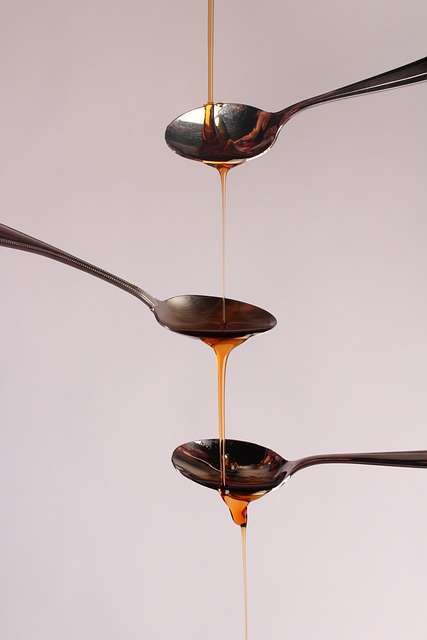
Conclusion: Enjoying the Rewards of Beekeeping
You’ve now learned the essential tips and tricks to kickstart your beekeeping journey. From understanding the benefits of beekeeping to acquiring bees, maintaining a healthy colony, and harvesting honey, you’re well on your way to becoming a successful beekeeper.
Remember, beekeeping is a rewarding and sustainable practice that requires ongoing learning, dedication, and attention to detail. By following these guidelines and seeking advice from experienced beekeepers, you’ll be able to navigate through the challenges and enjoy the incredible rewards that beekeeping has to offer.
So, put on your beekeeping suit, grab your smoker, and let’s dive into the fascinating world of beekeeping together! Your bees are waiting to embark on this exciting journey with you. Happy beekeeping!
FAQ’s
Is beekeeping legal in Pennsylvania?
- Yes, beekeeping is legal in Pennsylvania. However, it is important to comply with local regulations and ordinances, such as registering your beehives with the Pennsylvania Department of Agriculture and following any necessary guidelines and restrictions.
What resources are available for beginners looking to start beekeeping in Pennsylvania?
- Pennsylvania offers various resources for beginners, such as beekeeping associations, local bee clubs, and educational workshops. The Pennsylvania Department of Agriculture also provides information and guidelines for aspiring beekeepers, including helpful links and contacts.
Do I need any specific training or qualifications to become a beekeeper in Pennsylvania?
- While there are no specific training or qualifications required to become a beekeeper in Pennsylvania, it is highly recommended to gain knowledge and experience through hands-on courses, workshops, or mentorship programs. Learning about bee behavior, hive management, and bee health is vital for success.
How should I choose beekeeping protective clothing?
- When selecting beekeeping protective clothing, prioritize safety and comfort. Look for a full-body suit or jacket made of durable, lightweight fabric that provides ample protection against bee stings. Ensure that the clothing has a veil or hood that securely covers your face and neck, as those are particularly sensitive areas. Additionally, gloves, beekeeping boots, and a hat can further enhance your protection.
How do I choose the right location for my beehives in Pennsylvania?
- Selecting the right location for your beehives is crucial. Choose a site that provides ample forage for bees, away from high traffic areas and potential pesticide sources. Ideally, the hives should receive morning sunlight and be shielded from strong winds.
Where can I find reliable Beekeeping Suppliers in Pennsylvania?
- There are numerous places to find bee supplies in Pennslvania. You can check out local beekeeping supply stores, agricultural supply centers, or even online platforms dedicated to beekeeping equipment. It’s important to choose reliable sources that offer high-quality products to ensure the success of your beekeeping venture.
What types of honeybees are suitable for beekeeping in Pennsylvania?
- Several honeybee species are suitable for beekeeping in Pennsylvania, including the Italian honeybee, Carniolan honeybee, and Russian honeybee. Each has its own characteristics and advantages, so it’s a good idea to consult local beekeepers or experts to determine which species may be best suited for your specific circumstances.
What are the common challenges faced by beekeepers in Pennsylvania?
- Beekeepers in Pennsylvania may encounter challenges such as variable weather conditions, pests and diseases (such as Varroa mites or foulbrood), hive management issues, and honeybee swarming. Staying informed and proactive in monitoring and addressing these challenges is crucial for maintaining healthy colonies.

